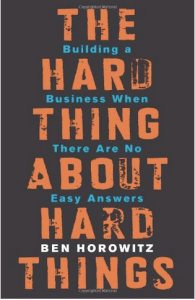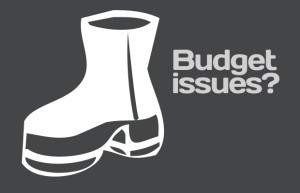 If you’re forced to eat shit, don’t nibble.
If you’re forced to eat shit, don’t nibble.
In a perfect world, that would have been the title of this book, but we live in an imperfect world. We also work in imperfect businesses, where things can, and frequently do, go very wrong. Things going wrong is the basis of this book.
Part memoir and part how-to guide for people in business or people who own their own business, Horowitz covers a whole raft of topics that don’t get the airtime they deserve – how to fire people, how to integrate big company people into startups, how to deal with hiring someone from a friend’s company – and much more besides.
The good days are the ones we all shout about. Sadly, they can be all too infrequent. The bad days are inevitable and they are grim. Read this and they might get a tiny, tiny bit easier. Also, if you do end up being forced to eat shit, you know what to do…


